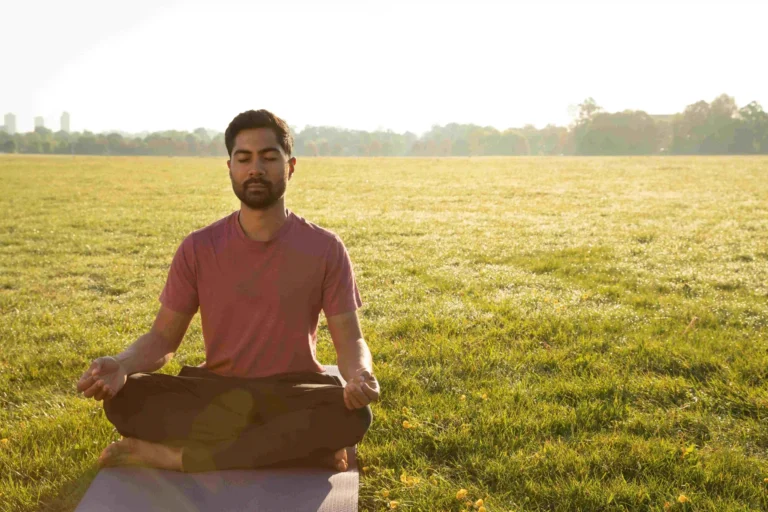
Life moves so fast these days that maintaining balance can seem like an impossible task. But the key to long-term happiness lies not in quick fixes or major lifestyle changes, but in the small things you do every day. Developing daily habits that support both your physical and mental well-being is a great way to achieve long-term health and happiness. Start your day with a purpose, prioritize yourself, and stick to a routine. This helps you create a sense of calm and well-being that will spread throughout all aspects of your life.
Positive daily habits can help you organize and streamline your life. They create space for work while also providing time for rest and reflection. When you maintain a rhythm, your mind and body begin to work in harmony. You’ll feel more in control, less stressed, and better equipped to handle the challenges of each day. Over time, these small habits will make you stronger, more confident, and healthier.
Start your day right
The first thing you do in the morning sets the tone for the rest of your day. A rushed, chaotic day often means a stressful one. A calm, focused start, on the other hand, helps you stay focused and positive. Don’t immediately reach for your phone when you wake up. Instead, stretch, take a few deep breaths, and think about how you want your day to go. A few minutes of mindful rest can make a world of difference in how you feel.
Drinking water can help you stay hydrated. Stretch or move, and make a plan for your day. When you start your day with purpose, you’ll find peace and focus, not stress and chaos. A calm, structured day starts with this simple habit.
Put nutrition and exercise first
Your body and mind function best when you nourish them with a healthy diet and regular exercise. Staying healthy doesn’t require a strict diet or intense exercise. Regularity is essential. Choose meals with whole grains, fruits, vegetables, and meat. Take your time, savor your meals, and pay attention to your body’s hunger cues. Staying hydrated is just as important; adequate hydration helps you stay focused, replenishes your energy, and keeps you feeling good all day long.
You don’t have to spend hours at the gym to stay active. You can take a morning walk, do a little yoga, or simply dance around in your living room. These moments of movement can clear your mind and relieve stress. When your body feels strong and refreshed, your mental health will improve as well.
Take a break and reset
People often forget that rest is just as important as completing tasks. Without rest, your body and mind become exhausted, leading to burnout. Schedule short breaks throughout the day to recharge and relax. Close your eyes, take a walk, or focus on your breathing. These short breaks may seem insignificant, but they can help you stay calm and present.
One of the best ways to rest is through mindfulness. When you take a few minutes to breathe or listen to the sounds around you, you bring yourself back to the present moment. This quiet awareness can lead to greater emotional stability and less stress.
Take care of your sleep
In the long run, getting enough sleep is best for your health. Maintaining a regular sleep schedule allows your body to repair itself, rejuvenate, and maintain a good mood. Try to wake up and go to bed at the same time every day. Create a nighttime routine that tells your body it’s time to relax. To unwind, turn off the lights, step away from your computer, and do some reading or light stretching.
Adequate sleep is good for your body, mind, and mood. A good night’s sleep helps you face life’s challenges with more patience and positivity.
Value your time
The key to developing healthy habits isn’t to do more, but to do what matters most. Understanding how you use your time helps you stay organized and avoid overload. Don’t try to do too much at once; this drains your energy and focus.
Create some free time and unexpected moments. Life is full of uncertainty, and healthy habits should adapt to you, not control you. Learning to consciously manage your time can help you reduce stress and free up more time for fun and rest.
Be grateful and reflect on yourself
Take time to reflect at the end of the day. Gratitude and self-reflection are calming and effective ways to support your mental health.
If you do this daily, your life will be filled with hope and respect. Over time, this habit will become a source of inner peace and happiness.
Reduce digital noise
While many technologies offer benefits, they can also hinder your ability to rest and think clearly. Constant notifications, scrolling through social media, and prolonged screen time can increase anxiety and make it harder to concentrate. Limiting the time you spend on technology is one way to take care of yourself.
Schedule a time each day to check email and text messages. Don’t use your phone during meals or before bed. Reduce your computer time and spend more time in the real world. When you reduce digital distractions, your happiness, focus, and imagination will naturally improve.
Connect with people who make you feel good
Building relationships is crucial for your long-term health. Connecting with others provides emotional support and a sense of connection. Spend time every day with people who make you feel loved and cared for. This could be a friend, family member, or colleague.
A short conversation, a thoughtful letter, or a shared meal can significantly increase your happiness. Surround yourself with people who make you feel good and inspire you to grow.
Find joy in your daily life
Healthy habits require more than just order; they also require joy. Doing something you enjoy every day can bring you peace. These small things, like reading, farming, painting, or simply enjoying the sunset, can bring more balance to your life.
Having joyful habits helps remind you that health isn’t just about following rules; it’s also about enjoying life and being present. When you make room for joy, you develop a routine that fulfills you instead of limiting you.
Give your daily routine the opportunity to change
Your daily habits should evolve as your life progresses. What works for you now might not work for you tomorrow. Check in with yourself regularly and adjust your habits as needed. If something stresses you out or exhausts you, replace it with something natural and satisfying.
Perfection isn’t the goal; the goal is long-term success. Fluid habits help you maintain your balance as you learn and adapt to changes in your life.
Frequently Asked Questions
How long does it take to develop a lasting habit?
A lasting habit usually takes a few weeks of doing the same thing every day. Don’t try to change everything at once; instead, start small and build up gradually.
What if I don’t always do what I say I will?
Perfection isn’t the goal. Don’t feel bad if you miss a day; just start again the next day. The most important thing is to persevere.
Are habits really good for your mental health?
Yes, habits provide stability and predictability, which reduces stress and worry. They can help you feel less stressed and more focused.
How can I keep it up?
Remind yourself why you started. Set reasonable goals and enjoy taking small steps toward a bigger goal. When your habits are meaningful, you’ll be more motivated to maintain them.
How do I start developing habits?
Start by focusing on one aspect of your life, such as getting enough sleep or exercise. Once you’ve established that habit, add another. Slow and steady growth leads to long-term success.
The Power of Consistency
Daily habits that contribute to long-term good health don’t have to be complicated or perfect. They’re based on daily choices, such as waking up with gratitude, eating mindfully, exercising, getting enough rest, and connecting with others. These small actions may seem insignificant, but over time, they build a solid foundation for health and happiness.
Developing daily habits to take care of yourself allows you to live a life full of balance, peace, and meaning. It might not be a huge change, but a deliberate step you take today is the first step toward long-term health and happiness.







